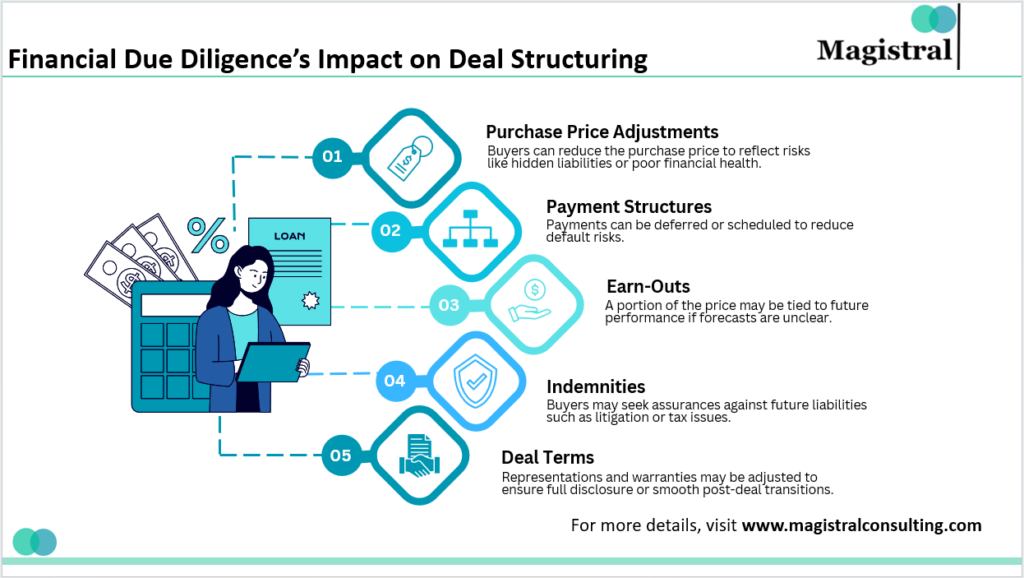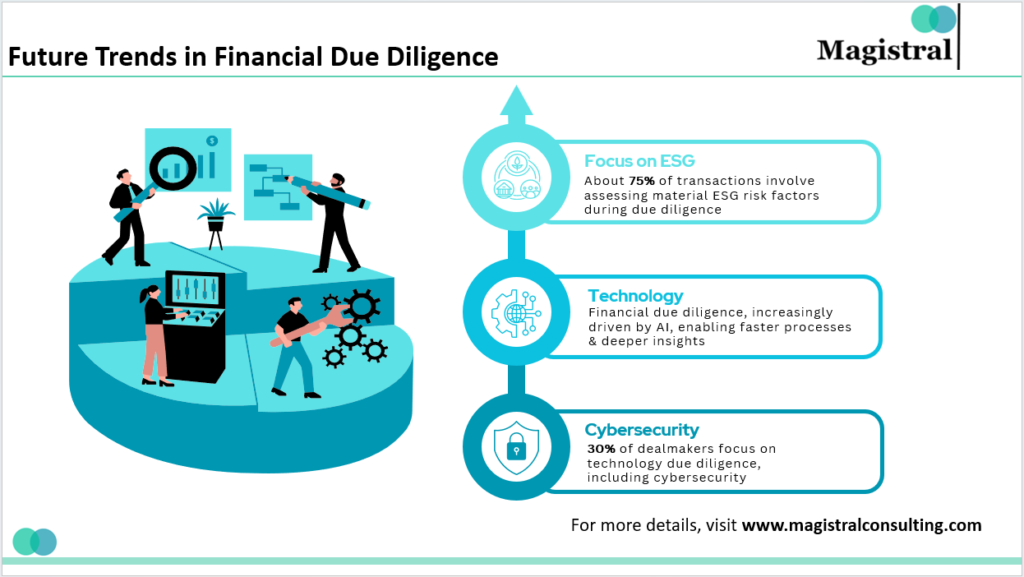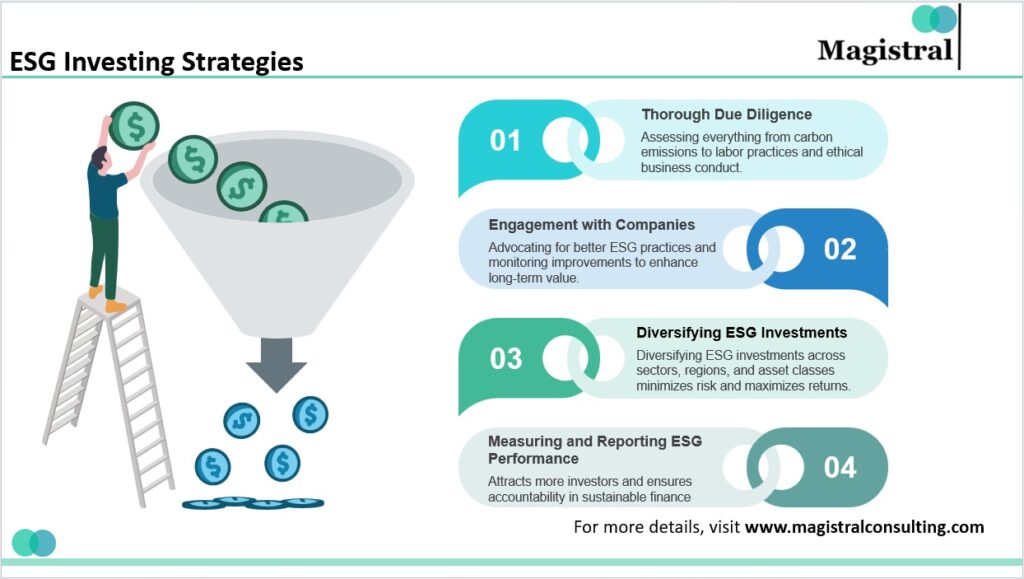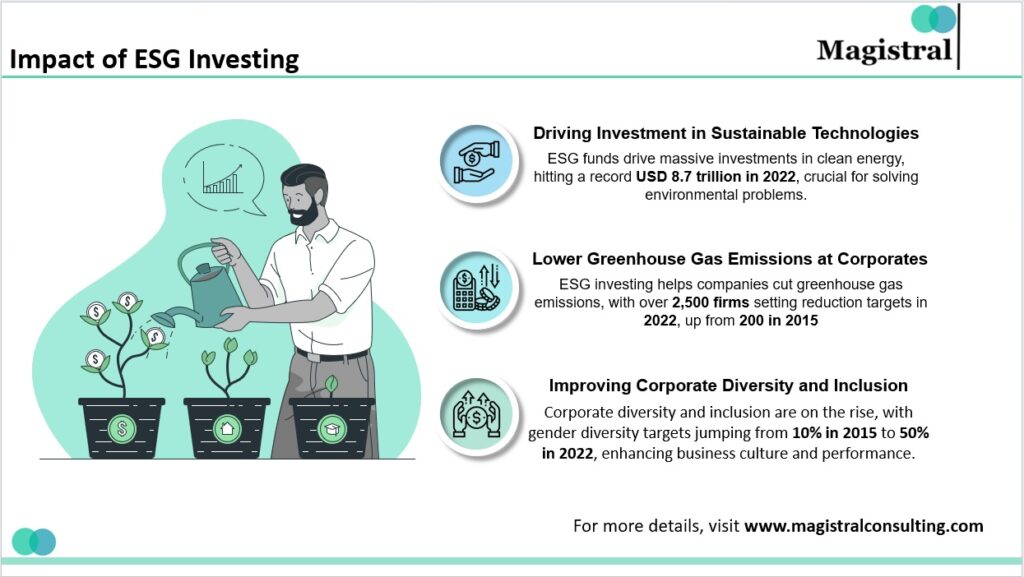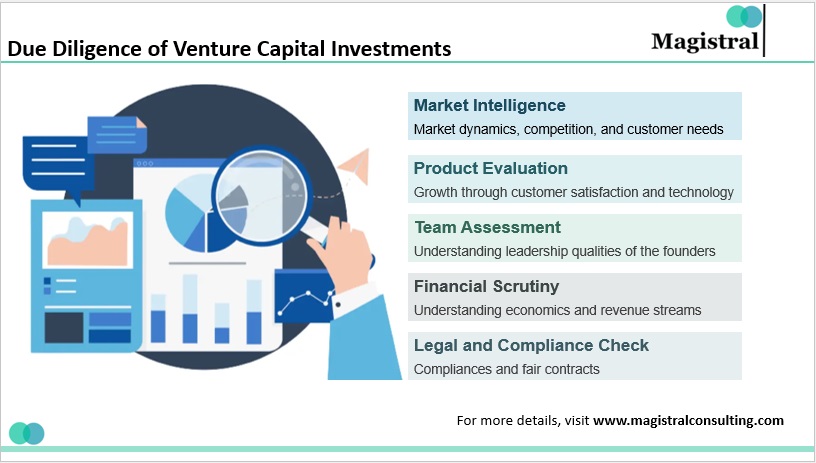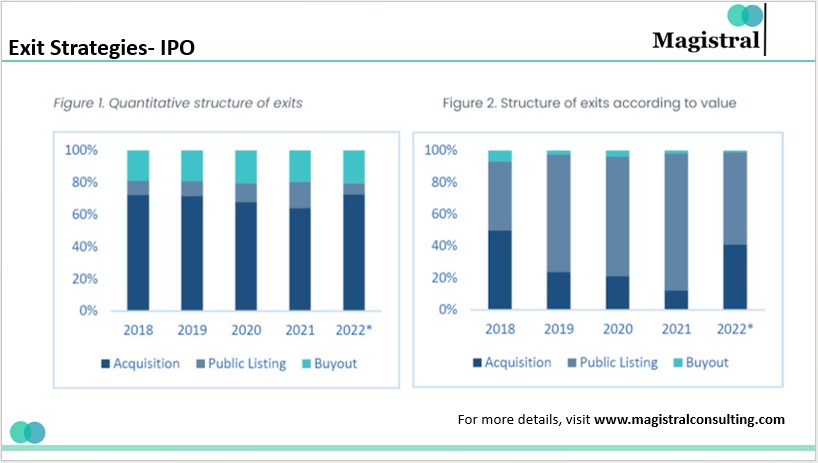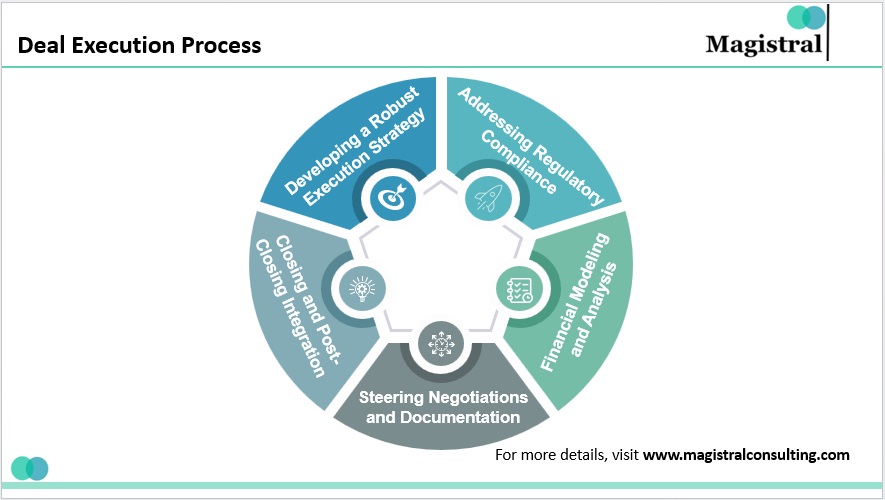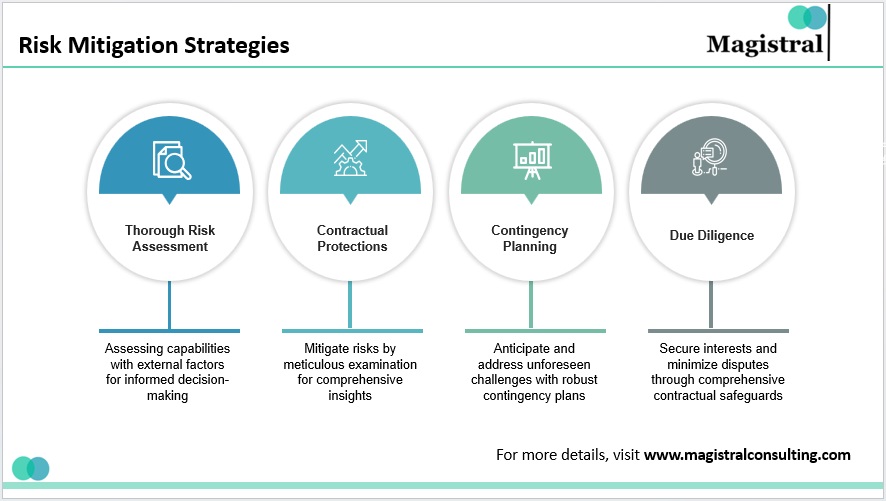The due diligence finance reduces risk and increases the integrity of investment decisions. Nowadays, due diligence is an ever-increasing requirement, because markets are more complicated by the day. The present ones in due diligence finance, their opportunities, the regions in which they differ from each other, as well as their growth drivers will be analyzed to conclude future trends.
Trends in Due Diligence Finance
The following trends are seen in Due Diligence Finance:

Trends & Opportunities in Due Diligence Finance
Data-Driven Due Diligence
Due diligence finance is data-driven in the modern digital world. Big data coupled with an AI-powered suite of tools is a game changer as far as investors and analysts are concerned in data gathering and interpretation. With real-time analysis, investors rely on advanced analytics to map trends, forecast risks, and assess financial health.
Focus on ESG
ESG factors are playing a larger and larger role in due diligence. Investors are now looking at the company not just in terms of financial performance but also in terms of ethical considerations. According to a 2023 report from MSCI, 79% of institutional investors considered ESG factors in their due diligence efforts.
Automation and AI in Due Diligence
Automated processes involving AI and machine learning have enhanced due diligence. Screening processes for risk are faster and more effective than traditional methods, enabling quicker resolutions for investors.
Cybersecurity and Data Privacy Focus
With the rise in cyber threats, due diligence now extends to assessing the cybersecurity measures of a company. Investors are increasingly concerned with data privacy and the security protocols that companies have in place to protect sensitive information. According to PwC, 60% of financial services firms are now incorporating cybersecurity risks into their due diligence.
Opportunities in Due Diligence Finance
Private Equity and Venture Capital
In private equity and venture capital, the due diligence process becomes particularly pronounced for countries that are new or where such sectors are unfamiliar. The fact that there is heightened interest in startups and, thereby, in new technologies offers enormous opportunity. In 2023, for instance, global venture capital funding reached $450 billion. All this was an indication of great interest and a burgeoning demand for robust due diligence processes.
Cross-Border Investments
The other wave of investment is the cross-border investment that has grown consistently and tremendously more than ever due to the rapid pace of globalization that is increasingly taking place. Cross-border dealings have continuously risen by 10% every year and would continue to nurture the interest in regulatory compliance and tax implications.
Mergers and Acquisitions (M&A)
Mergers and acquisitions still provide the largest potential return on investment for due diligence. In fact, according to Deloitte, the total deal value amounted to $4.5 trillion in 2022 in the global M&A market. Above all, due diligence in M&A deals assesses combined potential benefits, risks, and the planning of post-merger integration.
Impact of Blockchain and Cryptocurrency
Indeed, these have introduced fresh channels for due diligence: being decentralized, cryptocurrencies and blockchain would make specific checks necessary for financial analysts to ensure the integrity of transactions for transparency and regulatory compliance
Regional Trends in Due Diligence Finance
There are several regional trends observed in Due Diligence Finance. Some of them are:

Regional Trends in Due Diligence Finance
North America
Regulatory scrutiny has intensified recently in North America, especially after the implementation of Dodd-Frank and Sarbanes-Oxley. An increase in mergers, acquisitions, and IPO activity has spurred the demand for extensive financial due diligence. AI has made more inroads into the financial services business, particularly with the heavy investments by companies like Goldman Sachs and JPMorgan in AI-enabled solutions for due diligence.
Europe
The European market is witnessing a heightened demand for due diligence as economic recovery proceeds and investments pour into tech. ESG considerations are of primary importance in European financial due diligence, with the SFDR establishing a legal framework for ESG disclosures in due diligence processes.
Asia-Pacific
Fast-developing markets in the Asia-Pacific region make due diligence an essential tool to mitigate fraud, regulatory evasion, and financial misreporting risks. As far as the 2023 EY report goes, 67% of Asia-Pacific investors consider that due diligence is the most critical step when evaluating investments in China and India.
Middle East and Africa
With the increase of economic diversification in the MEA area, there is greater interest in new growth sectors, such as renewable energy and fintech. These burgeoning sectors have created a need for financial due diligence as investors maneuver through the regulatory quagmire of these new areas.
Key Drivers for Growth in Due Diligence Finance
Regulatory Changes
Rules are becoming more stringent across the world; hence it is one of the key developments that drive the growth of the due diligence finance market. This directs businesses to conduct a greater inquiry into the possible investments, acquisitions, and mergers they can have.
Technological Advancements
Advancements in technology in terms of AI, blockchain, and big data facilitate the speed and accuracy of financial due diligence. These tools help the analyst filter huge datasets to conduct assessments of risks and financial health.
Globalization and Cross-Border Deals
The growing need for due diligence is when more and more businesses become internationalized. Better understanding of varying regulatory environments, overall business practices, and financial structures is among the key growth drivers in foreign markets.
Investor Awareness of Risks
The global financial crisis has led to a sharp increase in risks under which no due diligence is conducted by investors who have become aware of these risks. This has, therefore, led to the demand for more detailed financial evaluations before making investment decisions.
Services offered by Magistral Consulting for Due Diligence Finance
Magistral Consulting offers a range of services tailored to support clients in the due diligence finance space. These services are designed to help investors, financial institutions, and businesses assess the financial health, risks, and growth potential of investment opportunities.
Comprehensive Financial Due Diligence
Reviewing financial statements, assessing profitability, liquidity, and cash flow; identifying possible financial risks while ensuring expressions of opinion on their accuracy.
Operational Due Diligence
Internal process assessment, evaluating management effectiveness, and operational risk; assessing scalability and operational efficiency.
Tax and Regulatory Compliance Due Diligence
Evaluation of tax strategies, whether these respect local and international regulations, and identification of any possible legal and tax liabilities.
Market and Competitive Due Diligence
Market trends, industry growth, and competitive positioning; Customer base, product portfolio, as well as market share assessments.
Debt and Credit Risk Due Diligence
Debt structures and repayment capability, along with creditworthiness; Liquidity constraints and default risks.
Valuation and Financial Modeling
Valuation models (DCF, CCA, PTA); sensitivity analysis; Detailed report on financial projections and assumptions.
Cross-Border and International Due Diligence
Cross-borders tax, regulatory, and market layers of complexity; geo-political risks and foreign market environment.
Customized Due Diligence Reports and Advisory
Tailor-made reports and strategic advice which would enable informed investment decisions; post-due diligence services to help mitigate risks.
Private Equity and Venture Capital Advisory
Assessment of growth prospects for the startup, financials, and exit strategies. Due diligence services for private equity and venture capital investments.
About Magistral Consulting
Magistral Consulting has helped multiple funds and companies in outsourcing operations activities. It has service offerings for Private Equity, Venture Capital, Family Offices, Investment Banks, Asset Managers, Hedge Funds, Financial Consultants, Real Estate, REITs, RE funds, Corporates, and Portfolio companies. Its functional expertise is around Deal origination, Deal Execution, Due Diligence, Financial Modelling, Portfolio Management, and Equity Research
For setting up an appointment with a Magistral representative visit www.magistralconsulting.com/contact
About the Author
The article is authored by the Marketing Department of Magistral Consulting. For any business inquiries, you can reach out to prabhash.choudhary@magistralconsulting.com
How to ensure thorough operational due diligence?
It involves assessing the efficiency of internal processes, management, and the operational risks faced by the organization because these activities end up highlighting the factors which may adversely affect the stabilization and growth of the business.
Why is ESG due diligence important for investors?
This kind of due diligence involves ascertaining the sustainability and ethical practices of an enterprise, enabling the investors to harmonize their investments with opportunities in the responsible and long-run-growth-related areas.
How does a firm can assist with post-merger integration?
Consulting Firm helps assess potential synergies and integration risks post-acquisition. This ensures smooth transitions and alignment of operations and culture.
What benefits do cybersecurity and IT due diligence offer to investors?
Cybersecurity and IT due diligence identifies vulnerabilities in a company’s infrastructure. It ensures that data security and risk management processes are robust and compliant.




